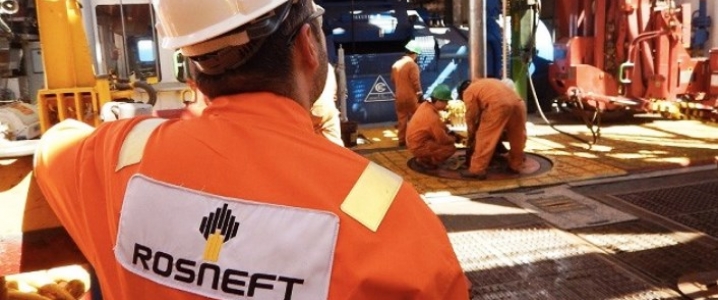When Vladimir Putin awarded Exxon’s then-CEO Rex Tillerson the Order of Friendship in 2012, little did either of them know that six years later they would be looking at each other from opposing corners, with Exxon planning to pull out of Russia almost completely.
It has now been made official: Exxon is dropping its Arctic joint ventures with Rosneft, for the negotiation of which Tillerson got the Order of Friendship. The move was prompted by U.S. sanctions against Russia for its annexation of Crimea and involvement in separatist movements in Ukraine. These were expanded last year on allegations of Russian involvement in the 2016 U.S. presidential elections.
The withdrawal means that Exxon will have to book an after-tax charge of US$200 million, but that’s not the main point. The company also announced losses of US$1 billion related to its withdrawal from other Russian projects as a result from the sanctions, but that’s not the point, either. The main point is that the supermajor has had to leave billions of barrels in untapped reserves that could have ensured the long-term sustainability of its main business and many more billions of dollars in revenues.
Rosneft, Exxon’s partner in the region, will also suffer similar consequences. One of the discoveries that they made jointly—one that Exxon funded—was the world’s northernmost oil field, Pobeda (Victory). The field has been estimated to contain around 952 million technically recoverable barrels of oil, or 130 million tons, although this was an early estimate made in 2014—the actual recoverable reserves could be much higher.
Related: 44 Things You Didn’t Know About Oil
In a way, it was an ill-timed discovery. The only exploration well at the Pobeda field was drilled in 2014, just as the European Union slapped sanctions on Russia for Crimea and Ukraine. The U.S. did, too, and Exxon had to freeze its Arctic operations.
Truth be told, given the severe weather conditions in the Kara Sea where the Pobeda field is located, which make it possible to drill within a very small window of about two months every year, the project could have been rendered uneconomical early on in the price crisis. On the other hand, Rosneft and Exxon may have persevered for the sake of ensuring long-term production.
It is a moot point now, however, and we may never know the viability of the project; work on the field has been suspended since 2014 because Rosneft could not tackle the technological challenges around offshore Arctic drilling without Exxon. In 2015, the company said it planned to resume drilling there this year, and earlier this month it said it was moving ahead with the development of Pobeda on its own.
Related: China Plans Record Natural Gas, Coal Production In 2018
Russia’s RIA Novosti noted, however, that this might prove difficult, and not because of the lack of adequate drilling equipment—that could be made at home or ordered from China. It’s more because of the departure of Exxon’s specialists that Rosneft is very likely to find it difficult to forge ahead on its own.
The situation may look grim today, but chances are both Exxon and Rosneft will weather it just fine. Both have been preparing for the withdrawal, exploring for oil elsewhere in more friendly climates, including political ones.
Rosneft is active in eastern Siberia while Exxon has been announcing discovery after discovery from its offshore licenses in Guyana. In other words, while Exxon’s pullout from its ventures with Rosneft is undoubtedly bad news for both companies, it is most certainly not the end of the world for either of them.
By Irina Slav for Oilprice.com
More Top Reads From Oilprice.com:
- Oil Profits Are Fueling South Sudan’s Civil War
- IEA Predicts Nightmare Scenario For OPEC
- The Truth About U.S. Energy Dominance



















A prominent loser in the sanctions saga was ExxonMobil. ExxonMobil applied twice for a waiver from the sanctions but both applications were rejected. Eventually it was forced to withdraw from its joint efforts with Rosneft but not without a huge financial loss.
In addition to an after-tax charge of $200 million, the company incurred losses estimated at $1 bn resulting from the withdrawal and has left behind untapped oil reserves estimated to be bigger than the entire reserves in the Gulf of Mexico, that could have ensured the long-term sustainability of its main business and brought it many more billions of dollars in revenues.
The Russian Arctic reserves will eventually enable Russia to add up to 1.5 million barrels a day in (mbd) to its production during the next 5-6 years.
Roseneft will go ahead initially with the development of the world’s northernmost oilfield, Pobeda, discovered jointly in 2014 with ExxonMobil with almost one billion barrels of recoverable reserves.
Dr Mamdouh G Salameh
International Oil Economist
Visiting Professor of Energy Economics at ESCP Europe Business School, London
They said that without being able to get a shut off valve on that riser, the well would have leaked oil into the Gulf until a relief well could be drilled to shut it off. Oil won't evaporate and be consumed by bacteria up in that cold climate up there. It will spread for thousands of miles.